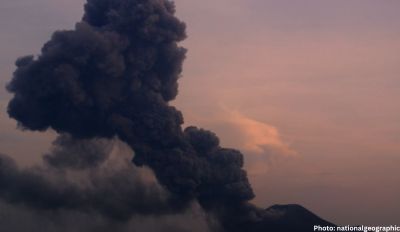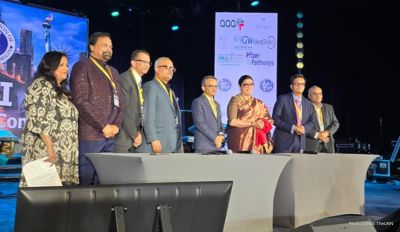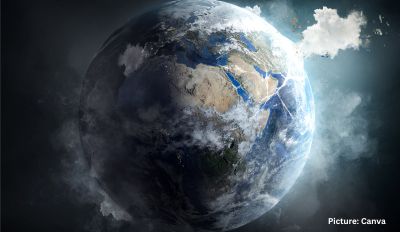In its latest iteration, the National Climate Assessment (NCA) delivers a comprehensive evaluation of climate change in the United States, emphasizing its expensive, deadly, and preventable consequences. The fifth edition, released every five years, offers a sweeping analysis, incorporating social sciences like history, sociology, philosophy, and Indigenous studies to provide a holistic understanding of the issue.
The assessment highlights the disproportionate impact on various demographics, stressing the urgency of addressing climate change to build a more resilient and just nation. Climate scientist Katharine Hayhoe, an author of the assessment, underscores this point, stating, “Climate change affects us all, but it doesn’t affect us all equally.”
One notable addition to this edition is standalone chapters on climate change’s economic toll, social factors driving it, and the nation’s responses. This broader perspective aims to add context and relevance to the scientific findings and draw attention to the specific vulnerabilities of poor people, marginalized communities, older Americans, and outdoor workers.
Michael Burger, the director of the Sabin Center for Climate Change Law at Columbia University, highlights the assessment’s influence in legal and policy circles, shaping decisions ranging from court cases on wildfire damage responsibility to local choices about building flood barriers. The report’s translation into Spanish further emphasizes its importance, making the information accessible to a wider audience.
The NCA is a collaborative effort involving hundreds of scientists from various institutions who reviewed cutting-edge research and contextualized it with decades of foundational climate studies. This edition arrives against the backdrop of a year marked by dramatic and deadly climate-driven disasters, including wildfires, floods, and heatwaves that claimed hundreds of lives in 2023.
Climate Change Makes Life More Expensive
The assessment identifies climate-driven weather disasters, such as heatwaves, floods, hurricanes, and wildfires, as major contributors to increasing expenses in various aspects of life. These disasters wreak havoc on homes, businesses, and crops, leading to supply shortages and financial distress for families and municipal governments. The report estimates that weather-related disasters cause approximately $150 billion in direct losses annually in the U.S., a figure expected to rise as the Earth continues to heat up.
Solomon Hsiang, a climate economist at the University of California, Berkeley, emphasizes the economic challenges faced by lower-income individuals in adapting to climate change. The report cites healthcare costs for illnesses related to extreme heat and respiratory issues from wildfire smoke as less obvious but significant expenses. The economic harm escalates with rising temperatures, with the assessment warning that twice as much planetary warming leads to more than twice the economic damage.
“The research indicates that people who are lower income have more trouble adapting [to climate change], because adaptation comes at a cost,” says Hsiang.
Climate Change Makes People Sick and Often Kills Them
The health costs of climate change have transitioned from theoretical to personal for many Americans over the past five years. Extreme weather, particularly heatwaves, has become more intense and prolonged, causing hundreds of deaths in unprepared areas. The assessment emphasizes the risks beyond heat, including the health impacts of wildfire smoke and disruptions to healthcare caused by hurricanes.
The most vulnerable populations, including poor communities, communities of color, women, people with disabilities, and other marginalized groups, bear the brunt of these disasters. The report points out that temperatures in historically redlined neighborhoods can be nearly 15 degrees Fahrenheit hotter than wealthier areas, putting residents at significantly higher risk of heat exposure.
Mary Hayden, the lead author of the chapter on human health, notes that living through climate disasters can have lasting emotional scars, impacting mental, spiritual, and community well-being. The report highlights the enduring trauma in communities like Paradise, California, five years after the devastating 2018 Camp Fire. It also raises concerns about the growing emotional toll on children and young people, whose anxiety about the future of the planet is affecting various aspects of their lives.
Climate change isn’t just altering landscapes and ecosystems; it’s also reshaping the sacred places and cultural practices that anchor communities across the United States. From fishing communities grappling with the collapse of iconic industries to Indigenous traditions disrupted by shifting climate realities, the impacts are profound.
Threats to Special Places and Practices
Fishing communities, particularly the Northeast’s lobster fishery, face economic downturns as marine heatwaves devastate regional seas. The decline in snowpack and rising temperatures disrupt cherished recreational activities such as skiing and ice fishing, impacting the lifestyles of many.
Indigenous communities, deeply connected to their environments, are forced to adapt to new climate realities that disrupt traditional food-gathering practices. In Palau, sea level rise has upset a monthly tradition of catching fish at a low tide, altering the historically-used places for fishing. Coastal communities are grappling with sea level rise, challenging their very existence and unraveling social fabric developed over generations.
Elizabeth Marino, lead author of the chapter on social transformations, emphasizes the resilience of communities closely tied to their environments. She states, “There is quite a lot of wisdom in place to adapt to and even mitigate climate change.” Despite the challenges, there is hope in the ability of these communities to develop solutions that align with their way of life.
The Role of Adaptation and Resilience
The fifth assessment underscores the urgency of addressing climate challenges to limit planetary warming to the goals set by the international Paris Agreement. Immediate, substantial cuts to fossil fuel emissions are required, with the report acknowledging the difficulty of achieving the more ambitious target of keeping warming below 1.5 degrees Celsius.
While the report paints a stark picture of the challenges ahead, it also highlights ongoing efforts to adapt to the new reality and prevent worse outcomes. Katharine Hayhoe, a climate scientist involved in the assessment, emphasizes the importance of individual actions, stating, “Everything we do matters. Every 10th of a degree of warming we avoid, there’s a benefit to that.”
Opportunities for Positive Change
- Jason West, the lead author on the chapter on air quality, points out that addressing fossil fuel-driven climate change can lead to healthier lives. Reducing emissions not only mitigates climate change but also decreases harmful air pollution, benefiting human health. This perspective reflects a shift in the report, acknowledging the historical injustices embedded in the fossil fuel-powered society built over generations.
Candis Callison, a sociologist and author of the report, notes this subtle shift in perspective. Climate change, she suggests, offers an opportunity to address past inequities and injustices. The report acknowledges the profound impact of pollution-producing facilities on communities of color and the exclusion of tribal communities from decisions about land and water use for energy extraction. Callison sees climate change as a catalyst for rectifying these historical wrongs and responding to the impacts in a more equitable way.
The fifth National Climate Assessment not only outlines the threats posed by climate change to sacred places and practices but also highlights the resilience of communities and the potential for positive change. By emphasizing the role of adaptation, individual actions, and addressing historical injustices, the assessment points towards a future where climate action can lead to a more just and sustainable society.











